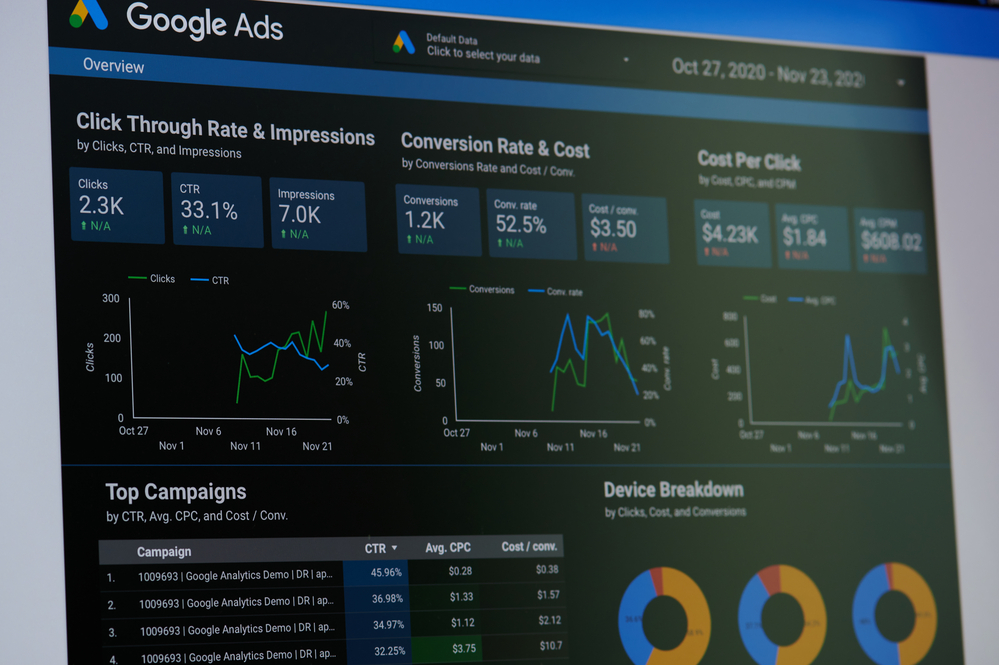Are you aware of AI’s influence on the digital world?
ChatGPT shows how AI can be used to increase efficiency in marketing, particularly digital marketing.
What are the uses of it? How can you use it efficiently? You can rely on the chatbot to be accurate.
These questions are answered here!
This article will share insights from our experts in a specific niche, along with the prompts that they used to achieve the best results.
ChatGPT: Write RegEx Patterns
Here are some tips and tricks on how to use ChatGPT.
What are RegEx Patterns?
Regular Expressions (RegEx) are patterns that describe a group of strings that match the pattern.
“It turns out that ChatGPT excels at creating complex RegEx patterns.”
Ask your RegEx questions, with enough detail, just as you would if you were talking to an experienced developer. ChatGPT will usually give you the final pattern or something 95% complete, which you can tweak a little to make it work.”
Here are some examples of how he used ChatGPT to do RegEx:
- Help me write a REGEX_EXTARCT() that extracts a query parameter’s value from a URL
- How to extract the product name from the URL of a Shopify Store
What I like most about ChatGPT, is how it explains the RegEx pattern.
You’ll not only learn more and develop your skills, but you’ll also get your final RegEx faster.
It is important to have a good understanding of RegEx to be able to validate the response, and tweak it as needed.”
Ahmad shared with us a few tips on how to use ChatGPT.
Top Tip: “Be as specific as possible in your request, but do not go overboard. “Give examples of what you want and any other information that is needed to solve the issue.”
Top tip: Always test the RegEx patterns provided by ChatGPT using a tool such as regex101.com, to ensure that it works.
Top tip: “Specify if it’s RegEx or Google Data Studio for BigQuery SQL (ChatGPT was trained before it changed its name to Looker Studio so I still call it Google Data Studio in my prompts).
Tip of the Day: Don’t treat it like a brain replacement, but as an assistant that can save you time while making you more productive in your current work.

ChatGPT is a Google Tag Manager plugin that allows you to use Looker Studio and Google Tag Manager.
“Chat GPT is a great tool for increasing my productivity and growing my business. I’ve been testing the different use cases for digital analytics, Google Tag Manager, and CRO.
Google Tag Manager is a tool that I have used to target elements and listeners using Regex, Custom Javascript, and Regex.
It’s essential to understand GTM because sometimes it does not produce the desired results. However, if you change the code or prompt you can usually get it working. This is more of a way to save time than anything else.
It’s a great tool for digital analytics. I use it primarily to create Looker Studio formulas and case-when statements.
CRO has written alternative headlines, and alternative copy, and analyzed the total number of pages to better communicate the message on the page.
It’s currently not able to understand design, so can only assist with the copy portion of CRO.
Below are the exact requests that I made to ChatGPT regarding GTM & Looker Studio support:
- Please target the first field of this code, and write me a code that will allow GTM to capture field values on submission.
- Can you build me a regex of “https://www.website.com/path1/path2/” but target path2 and make it dynamic so it would always pick up anything after path1/ and stop after path2/
- You can remove the first slash using Regex Extract in Google Data Studio.
- Can you give me an SQL to count event_names “session_start”, grouped by dates, over the past 6 months up to 2 days? I need it to be dynamic so that the date range is always “last 6 months up to 2 days”

ChatGPT Ads for Google Ads
We use big data sets every day, as we manage numerous Google Ad Campaigns that require us to analyze large chunks of them over and over to improve performance.
ChatGPT is used to analyze the performance of keywords in ad campaigns. It can be used to identify keywords that hit your ROA target, and also identify negative keywords which may hurt your campaign’s performance.
Prompt:
Can you analyze the performance of my Google Ad Campaign Keywords? I have a data set of keywords, impressions, and clicks for each keyword, as well as CPA, ROA, Cost per Conversion, and Cost per Click (CPC). Can you tell me, based on this data which keywords perform well (ROA > xxx%)? Can you identify negative keywords which may hurt my campaign’s performance? Can you also provide some insight into how to optimize my bids on each keyword to improve the overall performance of my campaign?
This is the dataset.
Please also suggest additional keywords that I should explore based on your analysis.
This allows us to analyze large amounts of search data quickly and easily. It is important to note that GPT-3.5 can be a little spotty.
It can be adapted to analyze a variety of datasets including demographics and traffic sources. ChatGPT is an excellent tool that we’ll probably use more frequently.”

ChatGPT Data Analysis
ChatGPT is a true MVP in the area of data analysis. We can enter vast amounts of information about our clients’ sites, including traffic, bounce rate, and conversion rates and ChatGPT will do the heavy lifting.
It analyses the data and gives us insights that allow us to identify areas of improvement.
We used ChatGPT in another example to analyze the data from a client’s website and found that its website loading speed had a significant impact on user experience.
We were able le reduce the load time of their website by 35%. This resulted in an increase in engagement.
We can copy and paste the data directly from our spreadsheets.
ChatGPT can analyze your data for you. If you don’t know what you want to see, ask the program to find out some general insights. Then you can ask more specific questions.
ChatGPT is asked to provide some suggestions after the first analysis.
It will then give you more information about the things that interest us most or provide examples of what would work best for your client.
Here are some random prompts we’ve used in the past.
- Analyze the website traffic data from the last month to identify patterns of user behavior
- Predict the website traffic for the following month using data from the previous six months
- Forecast sales for the quarter based on historical data
- Use historical data to predict customer behavior for next year
- Analyze the customer reviews and identify themes and sentiments
- Analyze customer feedback surveys to identify the areas of greatest dissatisfaction.
- Social media analysis to identify common sentiment
We sometimes ask it to rewrite our answers into paragraphs.
In some cases, we’re not satisfied with the generic responses that ChatGPT provides. You will get the answer you are looking for if you continue to ask questions, give new insights, or analyze things from a different perspective. Ask “Can you teme ll more about this? “_____”, to get detailed answers.
Top tip:
It can be asked to create a frequency or pivot table or to analyze specific columns or rows.
Top tip: You can also use ChatGPT to perform analysis based on what you think an SEO agency will want to see.

ChatGPT and Google Tag Manager: 10 Uses
On this list, we’ve decided to also include a member of our own.
Google Tag Manager is a tool that we love.
Use ChatGPT to integrate Google Tag Manager with Google Tag Manager in 10 easy ways:
- Chat with us to ask questions
- Create Custom HTML Listeners
- Custom HTML Bug Fix
- Create a CSS selector
- Create a RegEx
- Create a Lookup table Variable
- Create a Data Layer
- Change the Data Layer
- Create a Custom JavaScript variable
- Decode Tracking Request
Learn more about these cases in our article using ChatGPT and Google Tag Manager.
This AI tool is a great resource when it comes time to answer questions, generate ideas, write code, etc. Give it a go!
You can read more about it here:
You’re done! You now have a good idea of how to use ChatGPT in your digital marketing business.
It can save you time and prevent you from having to do everything manually.